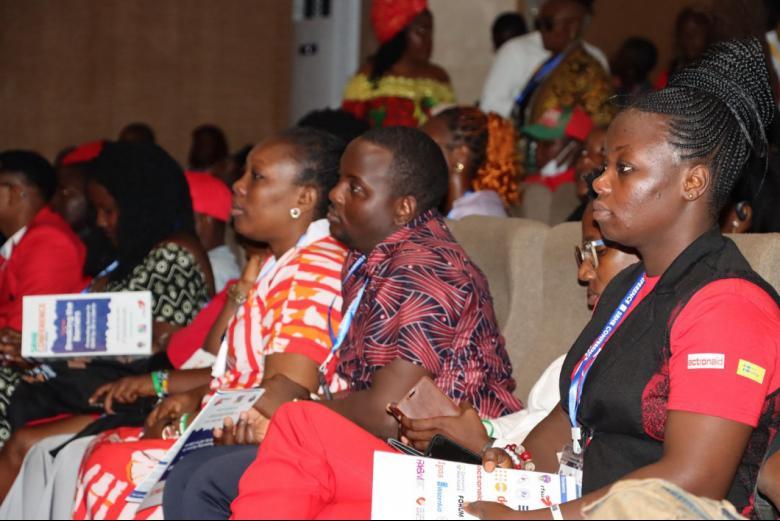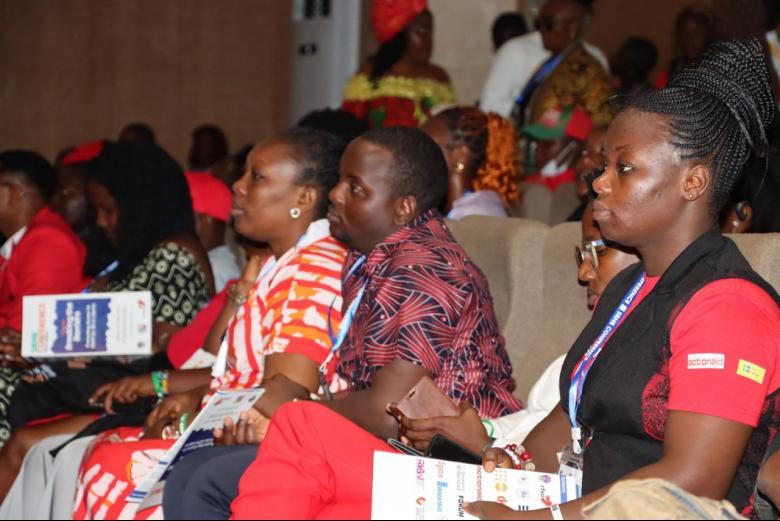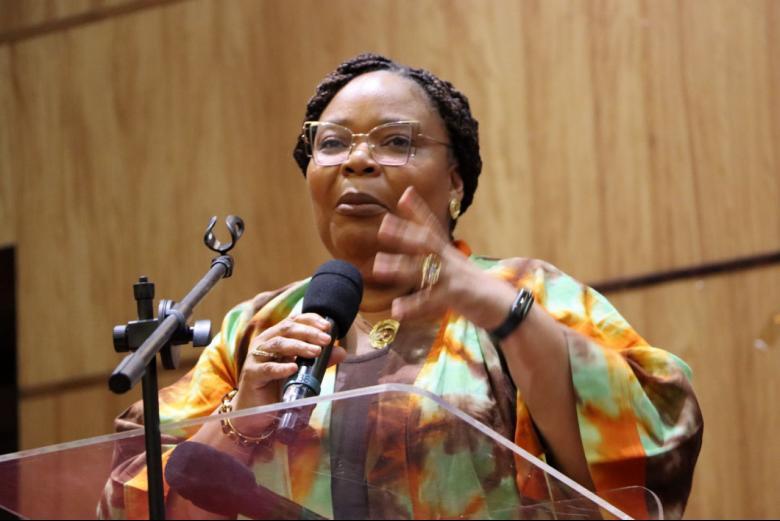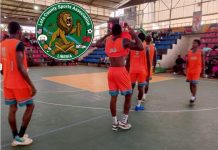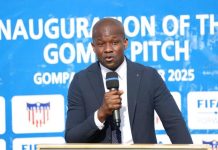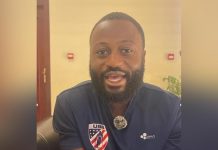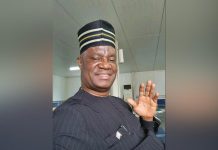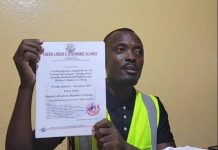Africa-Press – Liberia. In a powerful and emotional appeal that left many in tears, rural women’s rights advocate Ma Nowaai Ida Kaiser from Palala, Bong County, stood before hundreds of delegates at the Second National SRHR Conference and made a desperate plea to Liberia’s leadership: “Please take unsafe abortion from me.”
Speaking at the three-day conference themed “Breaking Barriers, Promoting Access to SRHR for All in Liberia,” Ma Nowaai painted a haunting picture of the reality facing rural women who resort to dangerous methods to terminate unwanted pregnancies.
“Where is the Minister of Gender?” she called out from the stage, her voice breaking with urgency. “I want you to take something from me. Take RPG from me. Please take the cassava sticks from me. Please take the broken glass bottles from me.”
The Minister of Gender was among the high-level government officials in attendance, alongside representatives from the Ministry of Health and members of the national legislature.
The conference, organized by the Amplifying Rights Network, a coalition of 10 local organizations, brought together over 700 participants from across Liberia, streaming live to six satellite hubs in rural communities, including Palala, Gbarnga, and Bopolu.
Nobel Peace Laureate Leymah Gbowee brought the conversation home with characteristic directness, challenging male politicians who oppose reproductive rights legislation.
“To the men in the house, to the male ministers, as far as the highest, until you have your periods, until you’ve gone through monthly cramps, their hard times, and all that is associated with reproductive health of a woman, you have no right to decide on our bodies,” Gbowee declared to thunderous applause.
She warned politicians to “stop the politics of women’s bodies because our bodies are not a political campaign instrument.”
Gbowee traced the problem to cultural taboos that begin in childhood. “From a very early age, they had made that word a bad word,” she explained, recalling how, as children, Liberian girls are taught their private parts are shameful and untouchable.
Conference coordinator Facia Harris outlined the progress since the first SRHR conference in 2023, which concluded with seven calls to action, including ending harmful practices, improving menstrual health, and implementing gender-responsive budgeting.
Harris emphasized the strong institutional participation at this year’s conference. “We have seen continual participation from high-level institutions, including the Ministry of Health, the Ministry of Gender, and national coalitions, and especially the national legislature,” she noted.
Ma Nowaai gave special recognition to international partners, particularly Sweden. “If I don’t talk about the Swedish government, my speech on this stage will be incomplete,” she said, noting the visible presence of Swedish support across development offices in Liberia.
She also praised progress in rural education access through family planning services. “Yes, you see now, our young girls can go to school, they remain in school, and they can finish sixth grade now. They can finish ninth grade,” Ma Nowaai noted.
Ma Nowaai’s central message was one of geographic inequality. “The landscape, yes, is about whether the message about sexual reproductive health and rights has reached Swaziland. When we reach Soweta, that’s not the end. There are villages behind Soweta. Have we reached there? No.”
She challenged the notion that media campaigns alone could reach rural communities. “When we say that we are using the media to reach everybody, what is the coverage? Media people, where is the coverage?”
Her metaphor about helpers at the waterside resonated deeply: “Liberian people, Liberian government, this is the time now for us to put our water on our knees. When the helper comes, they will put it on our heads.”
Guest speaker Dr. Dazon Dixon Diallo from Sister Love Incorporated reinforced the urgency, sharing lessons from the United States, where hard-won reproductive rights were recently overturned.
“Hold on to your wins. Defend them fiercely. Never rest,” Dr. Diallo warned the Liberian advocates.
As the conference continues through its three-day agenda, participants are developing actionable recommendations to strengthen legal frameworks and service delivery. But Ma Nowaai’s plea remains the most visceral reminder of what’s at stake.
“Please save me. Please save us. Please save the Liberian people. Please save the young people,” she implored. “Make safe abortion accessible.”
The conference streams live across six hubs, ensuring rural voices remain central to Liberia’s reproductive health future.
For More News And Analysis About Liberia Follow Africa-Press

